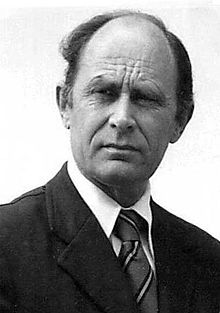When it comes to the fate of Western civilization, I often wonder whether “it’s all over but the shouting,” whether the odds favor our enemies.
(Secularly speaking. The Kingdom of God will interrupt the current evil flow. If you think the secular is all there is, we need to have another conversation.)
The sheer volume of material one has to grapple with to come to a responsible answer overwhelms me. And then there’s what one might call the secondary literature, the thousands of worthwhile blogs and other platforms on which pro-Westerners can hash things out and find their way through the maze. One cannot responsibly dismiss it with a wave of the hand or pretend to have mastered it.
Only today I stumbled upon the text of the talk that Hans-Hermann Hoppe‘s gave to the Property and Freedom Society last year. (Once upon a time I was au courant on all things libertarian. Better late than never.) Hoppe’s frank discussion of our parlous estate is one of the best things I’ve read in a long time (but you may discount the appraisal of one who’s just admitted to being late to the party).
It’s long. You’ll probably skip it. After all, life is short. I understand.
It ends with a list of imperatives I agree must be carried out. But how? I’m left with skepticism, if not despair, about what those who agree with Hoppe’s diagnosis can reasonably hope to do. It seems there is much more sand in the bottom of the hour glass than the top.
I invite debate not only about Hoppe’s remedies but also about the prospects for their ever being applied in time. Ludwig von Mises‘s aphorism* doesn’t allay my pessimism. (Yes, Mises believed this while escaping the grip of the Nazis, and the Institute that bears his name promotes his ideas, and yet . . . here we are.)
Let’s affiliate, help each other find the truth of the matter, support each other’s efforts, build each other up, encourage each other.
Our enemies need to be more than ridiculed, exposed, and refuted. They need to be defeated.
Here’s the link: The Alt-Right and AntiFa—A Libertarian Strategy for Social Change
* Tu ne cede malis [Virgil wrote] sed contra audentior ito. That is, “do not give in to evil, but proceed ever more boldly against them.” (Part of it is the motto of The Bronx.) Is giving up tantamount to giving in?


 William Schultz commented on Blanshard’s assessment:
William Schultz commented on Blanshard’s assessment:

 The author achieves this in about the same number of pages (at least, sans apparatus) but, more importantly, he does so with equal readability, all the more remarkable since English is not his mother tongue.
The author achieves this in about the same number of pages (at least, sans apparatus) but, more importantly, he does so with equal readability, all the more remarkable since English is not his mother tongue.

 When I chanced upon Sutton’s trilogy at a public library in the early ’70s,
When I chanced upon Sutton’s trilogy at a public library in the early ’70s, 